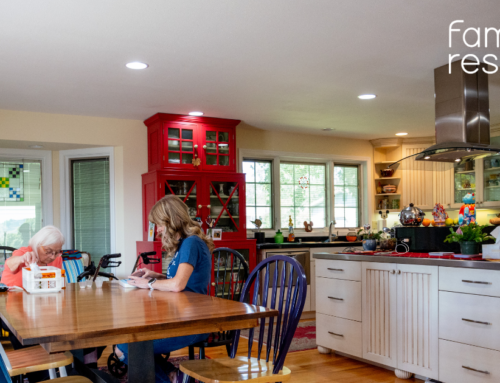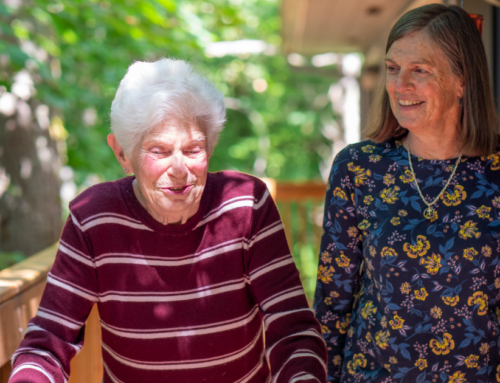Having a loved one return from the hospital to home can be a tremendous relief for everyone – especially the patient. They’re returning home to familiar surroundings and can start getting back into a routine they’re comfortable with.
But, helping a family member transition from a hospital to home can also be stressful, particularly for the person assuming responsibility for the transition. Making arrangements for the care of a loved one can prompt a range of emotions, including nervousness and fear.
Our team at Family Resource Home Care has helped many seniors and their families safely make a smooth transition from the hospital back to their homes. Here are four tips we’d like to share to help you make that transition safe and healthy for your loved one.
Be honest & Ask Questions About How to Safely Transfer from Hospital To Home
It’s essential that you be completely honest with your loved one’s doctor and the hospital staff about the amount of care you’ll personally be able to provide at home for your loved one’s transfer from hospital to home. For example, will you be able to get them in and out of bed? Do you know how to give medication or change dressings? They need to know what you can and can’t do so they can make appropriate referrals and recommendations.
The hospital staff and doctors should be able to answer any questions you have and provide some training to help you care for your loved one. In addition, for anything that is beyond your abilities, they should give you a list of resources that can help.
Get Clear Written Instructions from Doctors/Hospital Staff Concerning Medications
It’s estimated that as many as 40% of patients over age 65 have had medication errors after leaving the hospital. If you don’t work in the medical field, understanding the basics of the medications prescribed and what they involve can be challenging, especially with the stress of transferring your loved one from hospital to home. Different medications may need to be taken during different hours of the day, and they may not all be taken the same way. Ask as many questions about your loved one’s medicine(s) and schedule(s) as many times as you need to. Investing in a pill organizer or using a prescription service that packages and delivers medications with clear instructions can also help avoid mix-ups.
Evaluate Home Health and Home Care Agencies Before Returning Home
You may be handed a list of home care and home health agencies at discharge, but finding a good fit before your loved one gets home will make for a much smoother transition. Take the time before discharge to evaluate agencies and caregivers. They’re going to be spending a lot of time in their home with their family and their loved ones; choosing the right agency is pertinent to a smooth transition from hospital to home.
Ask agencies you’re considering what home care services they provide, how they select and screen their caregivers, and if they’ll provide you with a customized care plan.
Prepare the Home for the Transition
Before discharge, take the necessary steps at home to ensure your loved one’s safety and comfort. For example, clean their living space to promote good health, move furniture to make it easy for them to move around the home, and arrange for necessary medical equipment like a hospital bed or oxygen to be delivered and set up in advance of discharge.
Also, display health provider contact information and emergency numbers in a prominent place, like on the refrigerator for a successful transition from hospital to home.
Family Resource Home Care – Transitional Care Services
At Family Resource Home Care, our Transitional Care Services ensure the hospital and doctor’s discharge plan is carefully followed, along with the personalized home care plan we develop for you and your loved one. Services included in the plan will vary for each client but may include:
- Transportation from the hospital, skilled nursing, or another care facility to their home
- Meal planning and preparation, following dietary instructions or restrictions
- Assistance with medication
- Help with transferring from a bed to a chair and back, toileting, bathing, and dressing
- Transportation to follow-up appointments
- Assistance with ongoing therapy (physical, speech, occupational)
Call us today at (800) 775-6380 to learn more about our Transitional Care Services. We serve many communities throughout the Pacific Northwest, and a local caregiver team will skillfully and compassionately help your loved one transition back to the place they want and need to be – home.






